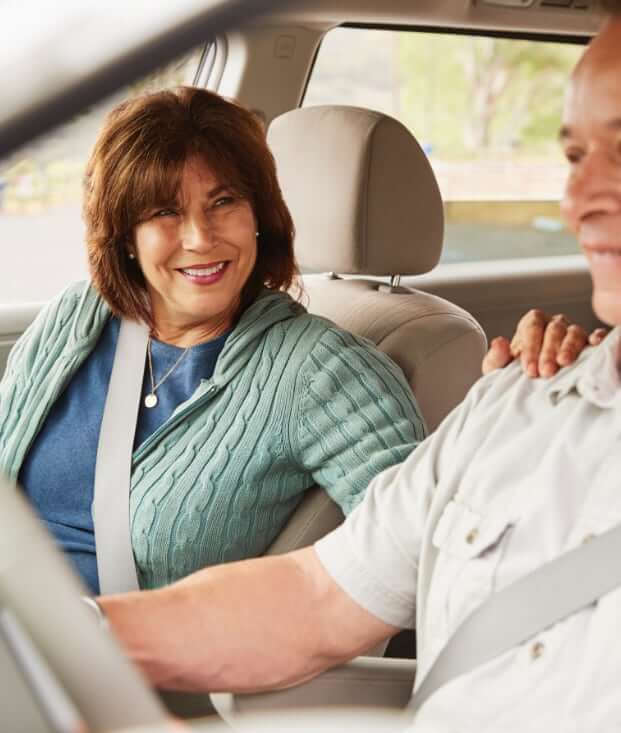Gastroenterologists Murdoch & Perth
Colonoscopy
Gastroenterologists Murdoch
What is a Colonoscopy?

This procedure involves a colonoscope, which is a type of endoscope. The endoscope is a long, thin, flexible tube. From its tip, and from inside your gut, it sends images to our screen.
With a colonoscopy, we pass the tube through your anus into your large bowel or colon, and the last part of your small bowel.
It allows your gastroenterologist to inspect these areas, to assess your gut health and to diagnose any gastrointestinal diseases you might have. Sometimes a colonoscopy is used to perform procedures such as biopsies. In that case, we send tissue samples to the lab for further analysis.
A colonoscopy might be done for any of the following reasons:
- Abdominal pain
- Change in bowel habit (how often you go to the toilet, or in the consistency of your stool/pool)
- Bleeding from your back passage, including faecal occult blood testing (FOB) for instance with the National Bowel Cancer Screening Program (NBSCP)
- If you are well and have no symptoms but someone in your family may have been diagnosed with bowel cancer, or if your doctor believes that you are at increased risk from bowel cancer for any reason
- Some authorities recommend everyone has a colonoscopy when they reach the age of 50
We perform a colonoscopy as day surgery in the hospital.
Wexford Gastroenterology is a team of specialists based in Perth, Western Australia. We are located in the Wexford Medical Centre at Murdoch. Our team believes that gastroenterological conditions are best managed by trained specialists with an interest in that field. We deliver care to patients with a variety of conditions.
Colonoscopy Murdoch
Before having a Colonoscopy
For a successful colonoscopy, it is essential to empty the bowel thoroughly of all waste material, which can be done by taking a bowel preparation. Details of the bowel preparations will be given to you once you have made the appointment for the procedure with our rooms. We have a few different types of bowel preparation and our team will advise you which one suits you best.
Failure to do this prior to colonoscopy may mean the doctor won’t be able to see important markers, or you may have to return for another procedure.
A complete bowel preparation consists of:
- Modifying your diet. This will involve following a special diet for several days prior to the colonoscopy.
- Taking a bowel preparation medication. There are several effective bowel preparations (laxative medication that causes diarrhoea and empties the colon) available and, depending on your medical condition, our team will recommend the right one for you.
- It is better to drink plenty of fluid while preparing for your colonoscopy, particularly in the last day or two. Specific preparation instructions will be given to you by your gastroenterologist.
Patients should also inform the doctor of all medical conditions and any medications, vitamins or supplements taken regularly. In particular patients with diabetes or kidney problems will need to have special advice.
If you have any questions about your upcoming colonoscopy, don’t hesitate to get in touch with us here at Wexford Gastroenterology.
Murdoch Colonoscopy
During a Colonoscopy
A colonoscopy is a day procedure. At Wexford Gastroenterology all our procedures are done in hospital with specialist anaesthetists present. These are doctors specially trained to put people to sleep and look after them during procedures.
Before the procedure an anaesthetic drug (sedative) is given. Most patients do not receive a full general anaesthetic like they would have for major surgery. Patients are still not awake during the procedure and do not remember anything afterwards.
A colonoscopy usually takes between 20 and 45 minutes. Once sedated and lying in a comfortable position on your left side, the doctor inserts the colonoscope through the anus and slowly guides it into the colon. A small camera at the end of the scope transmits a video image to a monitor, allowing the doctor to carefully examine the intestinal lining.
Once the scope has reached the opening to the small intestine, it is slowly withdrawn and the lining of the large intestine is carefully examined again.
Polyps may be removed during the procedure. A polyp is a small tissue growth attached to the bowel wall. These are common in adults and are usually harmless, however, most colorectal cancers begin as a polyp so removing them early is an effective way to prevent cancer.
If polyps are found during the procedure they will usually be removed using tiny tools passed through the scope. Small tissue samples or biopsies of the bowel may also be taken for examination. This allows the doctor to review it with a microscope for signs of disease.
Colonoscopy Murdoch
After a Colonoscopy

Following the procedure you will remain in the recovery area for an hour or two until the anaesthetic medication wears off. You will usually be given something light to eat and drink once you are awake.
When you wake up you may feel a little bloated. This is due to the air that was inserted during the procedure, and passes over the next hour or so. Very rarely you may pass a small amount of blood. This is often due to biopsies that have been taken and shouldn’t concern you.
Because of the sedation given during the procedure, it is very important that you do not drive a car, travel on public transport alone, operate machinery, sign legal documents or drink alcohol on the same day after the test. It is strongly advised that a friend or relative take you home and stay with you.
Full recovery is expected by the next day.
Wexford Gastroenterology Murdoch
Having your Colonoscopy with Wexford Gastroenterology
St John of God Murdoch Hospital, the Mount Hospital and Peel Health campus are the hospitals where we work. They are great places to have a colonoscopy.
We are gap-free providers, so you will not receive an additional bill from any of the gastroenterologists in the practice for your colonoscopy. We are all paid directly from the health insurance companies.
If you have any question about your planned colonoscopy, or if your GP has recommended making a booking please call our rooms for an appointment or for further advice.
